Adventure travel isn’t always about wave riding and rock climbing; sometimes it’s about heading inside, to explore our inner worlds.
While traveling long distances to sit with a group of silent strangers might be a little counterintuitive, meditation retreats provide instruction for those on an internal quest.
Are you looking for a less-traveled destination, home to a meditation practice that’ll relax you completely? If so, then Vietnam is a good choice. Book a vacation at the Vietnam Meditation Center and discover the incredible beauty of this country.
I. What is meditation?
Meditation is an ancient wellness method that focuses on practicing awareness to train attention and awareness and achieve a mentally clear and emotionally calm, and stable state. The practice is usually performed individually, in a still seated position with eyes closed.
Meditation can have many significant health benefits, such as better concentration, increasing self-esteem and self-awareness, reducing stress, helping manage anxiety or depression, reducing addiction, controlling pain, and promoting altruistic behavior. That’s why many travelers now seek a meditation retreat in Vietnam to improve their well-being during their journey.
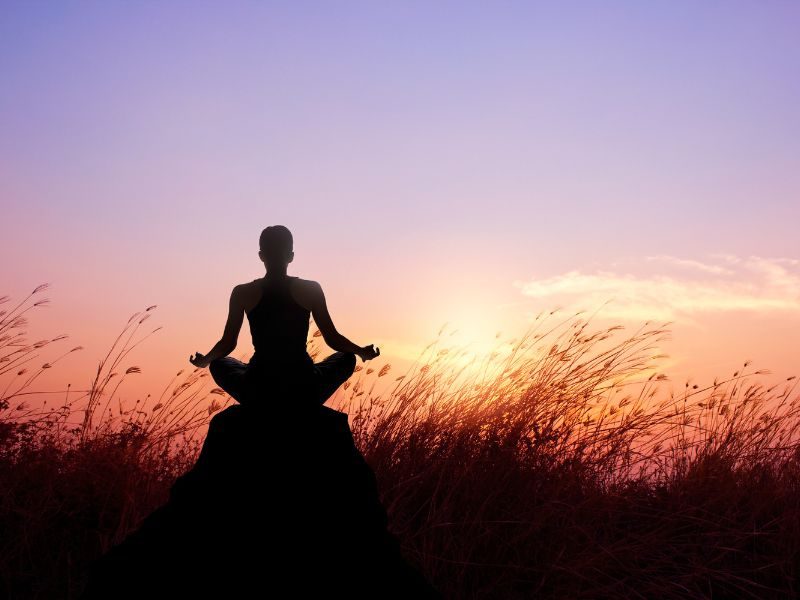
Join Our Vietnam Travel Community On Facebook
II. The difference between meditation and yoga
Meditation and Yoga are related in this sense. Meditation is a part of or a section of Yoga. Meditation is mainly for mental training. Yoga is mental and physical training. Both have their benefits and provide ways to train the mind and/or body.
Meditation practice is mainly mental training. While meditating, we are spending time and effort cultivating the qualities of the mind. Of course, there is a physical component in meditation, and you can even find practice-specific methods to work with the body. In general, meditation focuses on our minds and how we relate to our experiences.
Yoga, on the other hand, incorporates more physical training. Practicing yoga, you can find yourself sweating, doing muscle training, and improving balance. Stretching, flexibility, and strength are fundamental to yoga exercises, whereas they are absent in most meditation techniques.
So, is meditation or yoga better? The truth is that neither meditation nor yoga is really “better.” Both yoga and meditation may be beneficial to you. It depends on your goals. If you’re trying to deal with your unhealthy coping mechanisms, or just looking to add some healthy habits to your life, or build compassion, mindfulness, and clarity. Then, meditation may be the right choice, and finding a suitable meditation retreat in Vietnam can be a meaningful start.
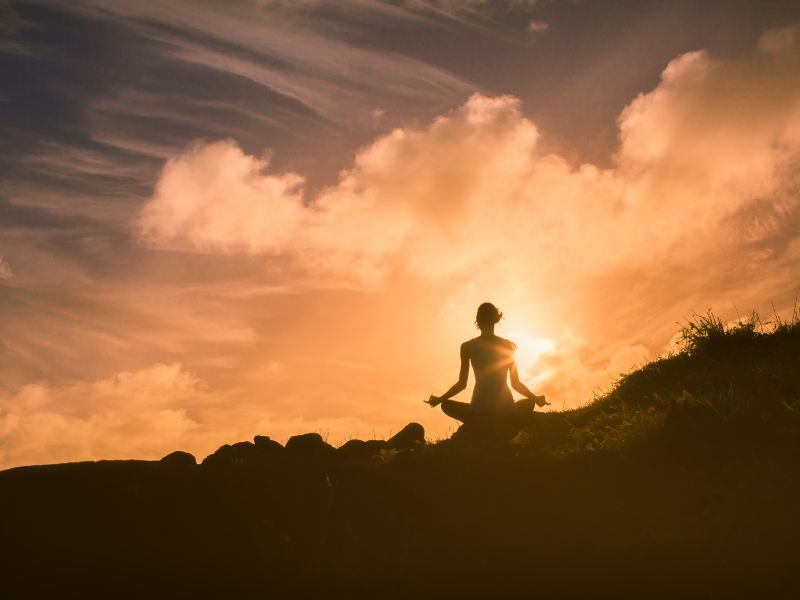
III. The 3 best Vietnam meditation centers
1. Truc Lam Zen Monastery
Location: Phoenix Summit, Da Lat city, Lam Dong province
Thien Vien Truc Lam is one of the largest meditation centers in Vietnam. The complex was completed in 1994 to give a new life to the Truc Lam Yen Tu Zen sect, a unique form of meditation in Vietnam was founded during the Tran dynasty (1225-1400).
As a meditation center, its main purpose is to help people live in “full awareness” and bring their souls back to peace. Truc Lam Zen emphasizes the interiority of each person, whether a religious or family member. This inner spiritual training leads to personal purification, builds up a relaxed mind, and helps one’s good nature to show up; this is the real peace of the people, not in some paradise in a faraway world. Immersed in nature and you will feel a fresh and cool atmosphere coming to your soul and body.
Visiting Truc Lam Zen Monastery in the tranquility of the mountains and hills, visitors seem to get rid of the worries of daily life, feel peace in mind, and “leave this world of dust”. Practicing meditation here, you can both watch the scenery and feel at peace in your soul.

2. Art of Living
Location: 215/12 Nguyen Xi Street, Binh Thanh District, Ho Chi Minh City
As one of the most trusted Vietnam meditation centers in Ho Chi Minh, the Art of Living Center has proficient teachers to assist you in finding internal peace and happiness. The Art of Living in Vietnam offers consulting services and workshops in yoga, meditation, breathing exercises, wellness, health, stress management for individuals, and inspirational leadership in the workplace for the management of organizations.
Art of Living provides the Sahaj Samadhi Meditation course. It trains your conscious mind to experience the silent depths of your nature.
In Sanskrit, “Sahaj” means effortless. “Samadhi” is meditation. It is a wellspring of boundless energy, intelligence, and creative power, and a place of endless harmony and peacefulness.
Practicing Sahaj Samadhi Meditation brings benefits like increased energy, insight, joy, and deep inner peace into our everyday experience.
Sahaj Samadhi Meditation is easy to learn. Because it is natural and effortless. Both mind and body are in a state of deep relaxation, in which the deeply rooted tensions break down and the experience of one’s own infinite potential for harmony, happiness and imagination unfurled. Anybody can learn and become completely proficient in just a few hours of practice.
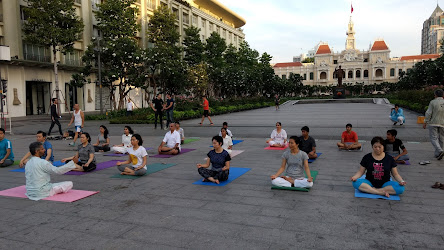
Explore Our Wellness – Health Tour
3. Vipassana Meditation Center
Location: Ngoc Thanh Nunnery, Ho Chi Minh City
From the time of the Buddha, Vipassana has been handed down. Vipassana, which means seeing things as they are, is one of India’s oldest meditation techniques. It was taught in India more than 2500 years ago as a popular remedy for common ills, i.e., an art of living. Vipassana meditation is towards the highest spiritual goals of total liberation and complete enlightenment.
The technique of the Vipassana meditation center is taught in 10-day boarding courses, in which participants learn the basics of the formula and practice enough to experience its beneficial results. There are no fees for the courses, not even to cover the cost of meals and accommodation. All fees are covered by donations from those who have completed a course and experienced the benefits of the course, wishing to allow others to benefit as well.
The course requires hard, serious work. There are three steps to the training. The first step in the process is to abstain from killing, stealing, sexual activity, lying, and getting drunk. This simple rule of morality helps to calm the mind, which otherwise would be too agitated to perform the task of self-observation. The next step is to develop some mind control by learning to focus your attention on the natural reality of the ever-changing flow of breath as it enters and leaves the nostrils.
On the fourth day, the mind is calmer and more focused, and can do better with the practice of the course: observing sensations throughout the body, comprehending their nature, and becoming calm by learning not to react to them. On the last day, participants learn a meditation of kindness or goodwill towards all, in which the purity developed during the Vipassana course is shared with all sentient beings.
This Vietnam meditation center is the venue for the course, not an official institution. All sincere people are welcome to take a Vipassana course to see for themselves how the technique works and to measure the benefits. All those who try it will find Vipassana to be an invaluable tool for achieving and sharing true happiness with others.
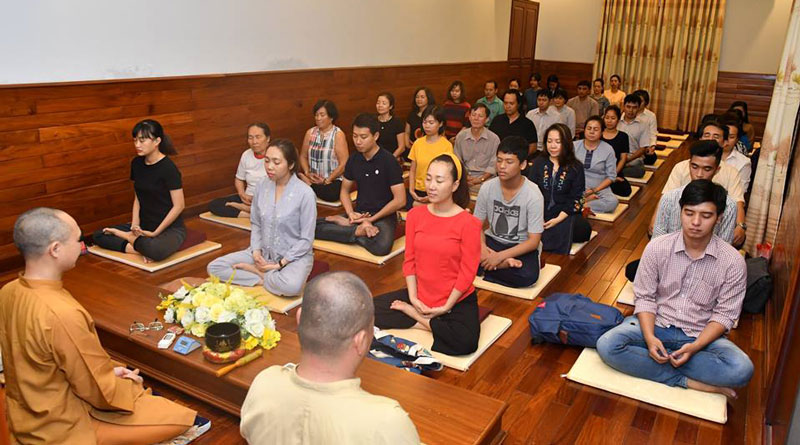
4. Contact us
Website: www.mettavoyage.com
Email: info@mettavoyage.com
Hotline 24/7: + 84 812 247 572
Join our WhatsApp Group to get the best travel rates here

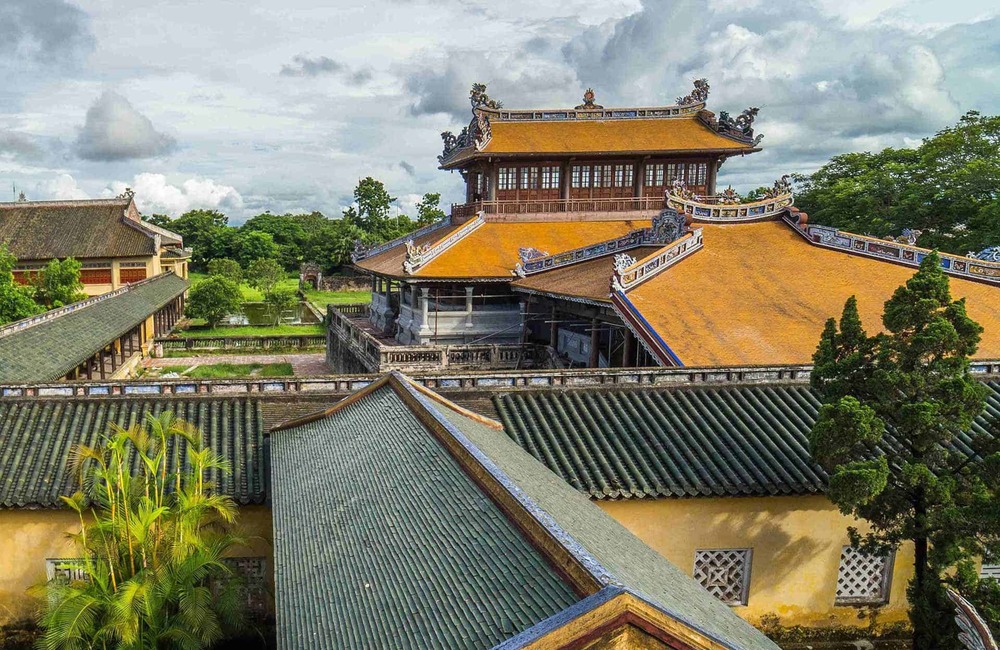

0 Comment